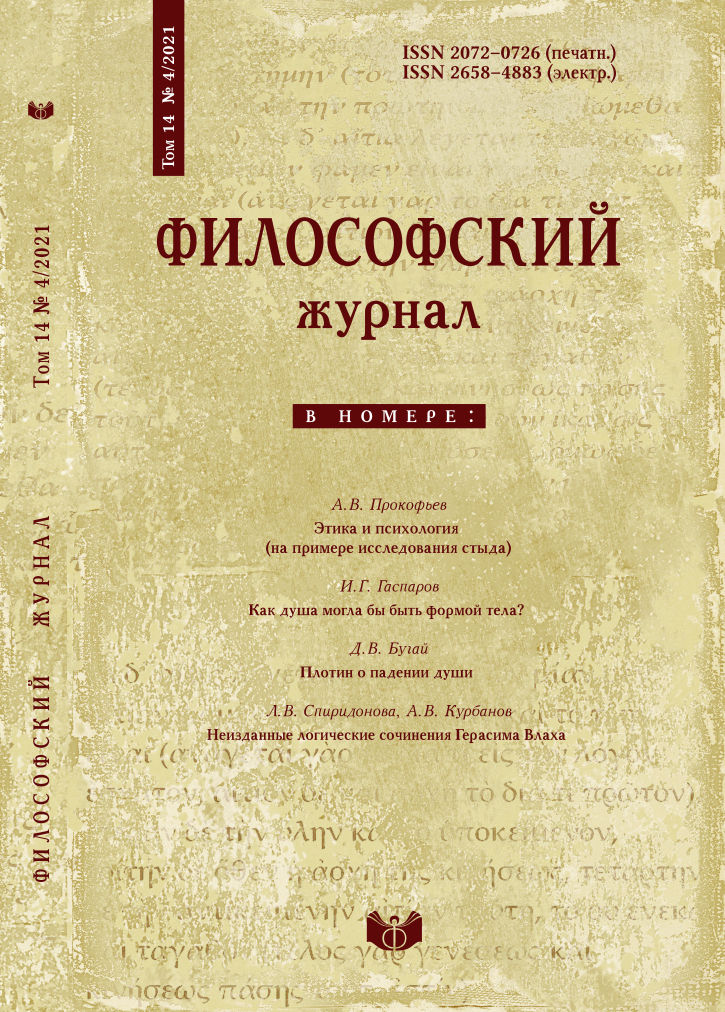Ethics and psychology (the case of shame studies)
DOI:
https://doi.org/10.21146/2072-0726-2021-14-4-5-21Keywords:
morality, ethics, psychology, moral emotions, shame, guilt, autonomy, heteronomy, adaptabilityAbstract
The paper explores a number of approaches explaining the interaction between ethics and psychology. These approaches state that: а) appeals to psychological data are destructive to moral philosophy, b) such appeals are harmless, but are useless in creating a correct theoretical vision of morality, c) the interaction between ethics and psychology can be collaborative and involve some mutual correction of methodologies. The object of research is psychological and ethical studies of shame. The author characterizes briefly two main psychological interpretations of shame: a) as an emotion of self-assessment that requires a real or imagined external blame, b) as an emotion of self-assessment that is focused on the personal features of a transgressor. Against the background of this reconstruction, the author establishes how psychological studies of shame can use resources provided by an ethical analysis of the sense of morality and by the content of particular moral concepts. On the other hand, the author shows, how ethical studies of the subject can use moral psychology to get rid of some elements of subjectivism in the image of the common moral experience that they create. Such collaboration is possible in demarcating shame and guilt (where it helps to grasp the two-sided character of shame) as well as in evaluating these two emotions (here, it highlights complimentary nature of them). The proposed analysis suggests that the third approach to the interaction of ethics and psychology is more justified.






